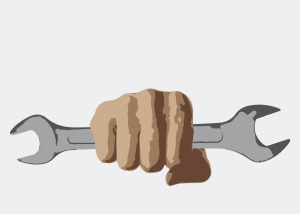by
John R. Fischer, Senior Reporter | February 02, 2022

Maintenance-related incidents for medical devices are being reported more worldwide
From the January/February 2022 issue of HealthCare Business News magazine
While regulations for reporting and handling maintenance-related incidents in medical equipment can help mitigate their impact, not all countries are on the same level when it comes to adverse event protocols. Four countries with relatively thorough and accessible data are the U.S., Germany, Scotland and Canada. In a session last summer at the 2021 AAMI eXchange, three experts looked at the numbers to see how the four countries stacked up.
Incidents related to servicing in the U.S. are tricky to quantify due to discrepancies between what the FDA reports and what the Joint Commission reports, according to Binseng Wang, VP of program management for Sodexo CTM – USA. However, the number of device maintenance related incidents reported lands somewhere between 18 and 172 per year between 1977 and 2018, or between .0004% and 3.14% of total incident reports.
Underreporting may also represent a challenge among doctors in the U.S. due to fear of litigation. FDA reports were found to contain bias from manufacturers who deny anything wrong with their equipment and blame issues on user errors. “So-called user errors are not exactly errors made by the users, but issues related to the human-machine interface,” said Wang.
Despite these issues, quality of service in the U.S. for medical equipment, however, is recognized as “very high” and in the “in the neighborhood” of 7 SIGMA (a measurement of manufacturing quality), said Wang, adding that one of the biggest issues is the “right to repair” debate around whether or not manufacturers should be obliged to share service information about their technologies with independent servicers.
A total of 603 incidents relating medical equipment servicing were reported between 2005 and 2016 in Germany, three of which resulted in death, due to poor maintenance (two by OEMs and one by an ISO).
Unlike in the U.S., manufacturers in Germany are required to share information with non-OEMs. Issues, however, still exist. “In many cases OEMs try to limit access to the information, proprietary parts, and technical training to keep their service monopoly,” said Frank Rothe, head of service management Europe at Vamed Management und Service GmbH, Deutschland – Germany. He argued that a more appropriate strategy would be to implement a remote service where manufacturers aid BMETs and technicians working in hospitals to solve issues that arise in devices for the safety of patients.
In Scotland, no medical device-related deaths were identified between 2014 and 2019, with the country documenting 18 reports involving medical equipment servicing. Jean Ngoie, head of instrumentation and clinical engineering for NHS Tayside in Scotland, attributes this to rigorous maintenance in biomedical engineering programs and continuous improvement of medical device regulatory processes.
